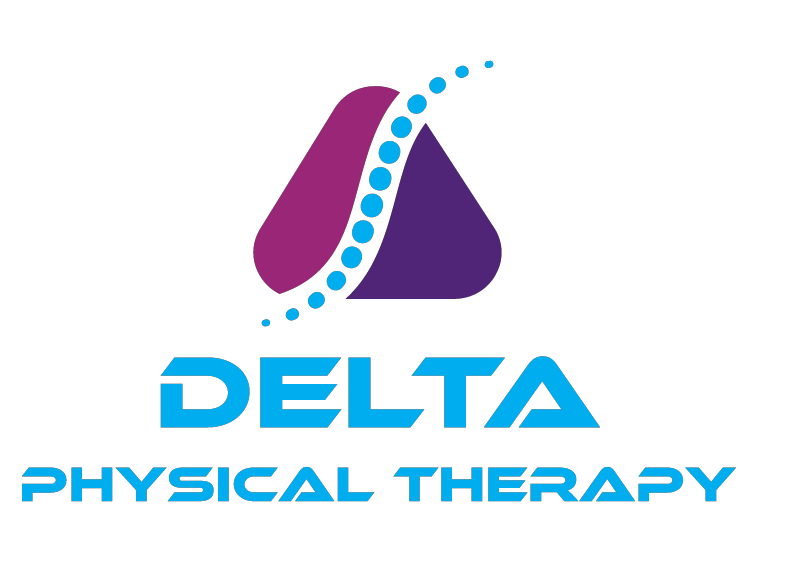Waiting It Out Won’t Work: Why Doing Nothing Can Make Your Injury Worse
Let’s talk about the classic move we’ve all pulled at some point:
You tweak your shoulder. It’s sore for a few days. Then it gets a little better. So, naturally, you do nothing. No PT, no mobility work, no follow-up. It stops hurting when you sit still, so you assume it’s “fine.”
Fast forward two months: you reach for a heavy grocery bag and boom - your shoulder reminds you that it was never actually fine. Now it's angry. Now you’re Googling, “do I need surgery for shoulder pain” at midnight.
Sound familiar?
You're not alone. At Delta, we hear this story all the time. And while we wish healing happened with time alone, that’s rarely the case. Doing nothing is not the neutral choice people think it is. In most cases, doing nothing actually lets the problem grow.
Pain Is a Liar (Well, Sort of)
Let’s get something straight. Pain is your body’s way of getting your attention, but just because the pain goes away doesn’t mean the problem is gone.
Pain can be inconsistent. It can settle down for a while when you’re at rest or not triggering it. That doesn’t mean your body has healed. It usually just means it has found a way to compensate, which can create more problems later.
For example:
Your knee pain fades, but now your hip is sore.
Your shoulder feels better until you hit a certain angle.
Your low back stopped screaming, but now you can’t sit for more than 20 minutes without tightness.
This is your body working around a problem, not fixing it.
Time Doesn’t Heal All Wounds. Sometimes It Makes Them Worse.
Here’s the thing. We totally get the temptation to wait it out. No one wants to overreact to a little pain. But when you leave injuries unaddressed, you’re not just giving your body “time to heal” — you’re giving it time to develop bad movement patterns, lose strength, and create more dysfunction.
Some of the risks of doing nothing:
Increased compensation from other joints and muscles
Loss of mobility or range of motion
Muscle weakness and imbalances
Higher risk of re-injury or flare-ups
Long-term limitations in your activity level
And let’s be real: eventually you’ll end up needing more help than if you had just started early.
The Earlier You Start PT, the Easier the Fix
Here’s what we wish more people knew. Physical therapy is not just for the worst-case scenarios. It’s not just post-surgery or after something has become “serious.”
PT is about solving the problem at its source—before it turns into a bigger deal. It’s about restoring healthy movement patterns, rebuilding strength, and giving your body what it needs to actually recover.
In many cases, the earlier someone starts, the shorter and simpler their treatment plan is. That’s right. Less time in PT. Faster results. Fewer setbacks.
What You’re Avoiding Might Be What You Need Most
People often avoid physical therapy because they think:
“It’s not bad enough yet”
“I don’t want to make it worse”
“It doesn’t hurt all the time”
“It’s just a normal part of aging or being active”
But here’s what we hear from those same people once they start PT:
“I wish I had come sooner”
“I didn’t realize how limited I had gotten until I started improving”
“I feel like myself again”
You don’t have to be in crisis mode to benefit from physical therapy. You just have to be ready to move better and stop guessing whether things are healing on their own.
What Makes Our Approach Different
At Delta Physical Therapy, we do things a little differently. We deliberately keep our patient-to-therapist ratio low, which means we’re able to give you the focused, individualized attention you deserve.
We don’t just treat what’s hurting. We take the time to figure out why it’s happening in the first place. That means looking at the way your body moves, how you compensate, and where the real breakdown is.
Whether it’s a minor injury that hasn’t gone away or something more complex, we work with you to get you back to living, lifting, walking, chasing your kids, or doing whatever it is that makes you feel like you.
Final Thought
If you’ve been quietly hoping your pain will disappear on its own, take this as your friendly nudge to take action.
Doing nothing might seem easier in the moment, but it rarely pays off long term. You deserve more than “good enough” movement. You deserve to feel strong, capable, and pain-free.
Let us help you get there.
